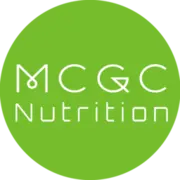Hydration is the cornerstone of good health, as water plays a crucial role in maintaining bodily functions and overall well-being. Apart from quenching our thirst, staying adequately hydrated benefits our skin’s elasticity, joint lubrication, and temperature regulation. Additionally, drinking enough water aids in proper digestion by breaking down food efficiently and supporting nutrient absorption. About 60% percent of the adult human body is made up of water, emphasizing its importance in sustaining life. Dehydration can lead to various negative effects on the body, such as fatigue, headaches, and impaired cognitive function. It is essential to listen to your body’s signals and consume fluids regularly throughout the day to prevent dehydration.
Note that fluid needs can vary based on individual factors such as age, gender, activity level, and environmental conditions such as hot summer days! Fluids can also vary based on medical conditions such as renal disease; in which case you should discuss how much fluid to intake with your doctor and/or dietitian.
In general, the recommended daily fluid intake most healthy adults is to drink six to eight 250 mL (8 fl oz) glasses of water or other fluid every day.However, it’s important to adjust these guidelines based on your individual needs and lifestyle. Staying hydrated is a simple yet powerful way to support your body’s functions and promote optimal health. So remember to keep a water bottle handy throughout the day and prioritize staying hydrated to feel your best.
How to know if you’re dehydrated? An easy sign is the color of urine. Normal urine is light or pale yellow and transparent. If urine is dark yellow or amber and isn’t transparent you may require drinking more fluids – do not hesitate to discuss this with a medical provider. In some cases, water may not be enough and there may be the need to introduce electrolyte beverages, such as those who do sport for over one hour or in hot weather.
Note that most beverages can count towards fluid needs, however, it is recommended to make water your drink of choice and limit beverages with sugar, sodium or saturated fat. You may be interested to read some interesting ways to flavor water which can be found on the Health Canada website: https://food-guide.canada.ca/en/healthy-eating-recommendations/make-water-your-drink-of-choice/
Some food can also be a source of hydration such as fruit and vegetables. Here are a few foods to help you quench your thirst on a hot day:
- cucumbers – 95% water content
- iceberg lettuce – 96 % water content
- zucchini – 94% water content
- tomatoes – 94% water content
- celery – 95% water content
- watermelons – 92% water content
- Cantaloupe – 90% water content
- Strawberries -91% water content
- Oranges – 88% water content
Conclusion:
Staying hydrated is essential for overall health and well-being, especially during hot weather or physical activity. While water is the primary source of hydration, electrolyte beverages can also be beneficial in certain circumstances. Additionally, incorporating hydrating foods like cucumbers, lettuce, zucchini, tomatoes, celery, watermelon, cantaloupe, strawberries, and oranges into your diet can help maintain proper hydration levels. Prioritizing hydration through both fluids and food intake is crucial for optimal health and performance.
*The information provided this website (www.mcgcnutrition.ca) is for general informational purposes only and does not substitute advice from your personal health professionals. Articles provided on this website (www.mcgcnutrition.ca) are only the sole opinion of the author and do not represent the company and do not replace medical advice from your own medical professional. Before taking any action, we encourage consultation with your doctor or your healthcare professionals. The use of any information on this site is solely at your own risk.
